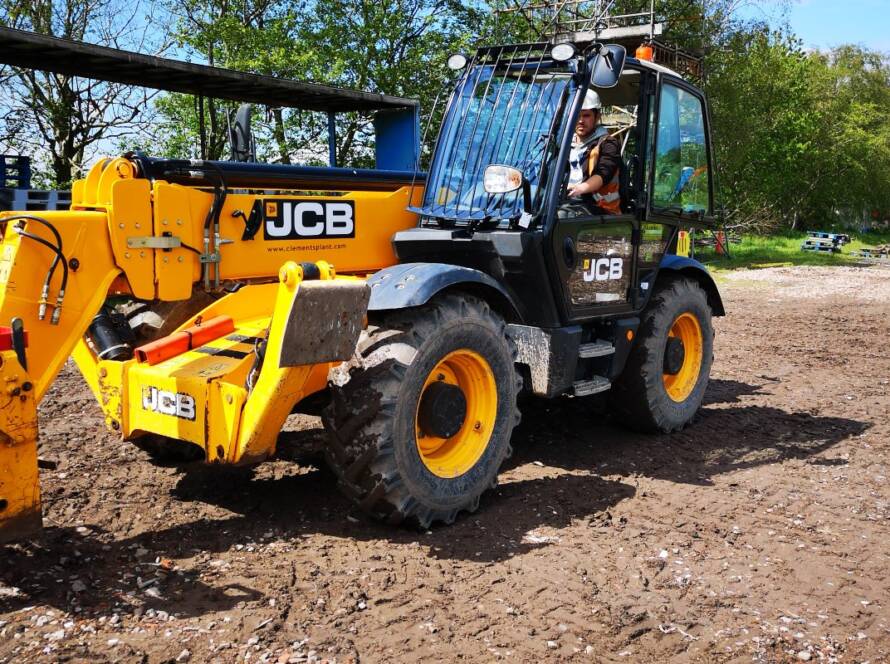If you want to become a part of the construction industry, you need to know about these things
It does not matter if you have some experience in the industry or you are a fresh graduate without any experience; there are multiple opportunities available in the construction industry. If you have decided to join the construction industry, this article will help you and guide you to numerous options available to you to choose from; through degrees, diplomas or apprenticeships. Construction industry is one of the most versatile and diversified industries in the world and there are different roles available, depending upon your preference; whether you like a hands-on approach and a technical job or if you are more inclined towards an office job. Before selecting or deciding a role or position for yourself, you need to research a lot and find information related to that post, including the job requirements as well as the degree qualifications necessary for that particular role. You can research over the Internet or ask around to people who you already know, are working in the construction industry.
As mentioned earlier, the construction industry is one of the most versatile and diverse sectors in the world and can accommodate people from a variety of different backgrounds. From entry level to the top-management, there are several roles available in the construction sector. There are planners, warehouse managers, architects, plant managers, engineers. Quantity surveyors, draftsmen etc., which work and offer their services in this particular sector. It is always good to plan ahead of time and decide where you want to be in the future before selecting any role for yourself. This article explains in detail, attempting to answer your queries related to working in the construction industry. If you have decided to enter the construction industry, give the complete article a good read.
Read the complete article if you want to work in the construction sector!
How to Get Your First Construction Job
Finding an entry-level construction job shouldn’t prove too difficult a task, as opportunities are plentiful and the industry has been on the rise since 2009. The difficult task is knowing exactly what constitutes ‘entry-level’.
If you see the words ‘Trainee Quantity Surveyor’ don’t assume anyone can apply for it. As is often the case, it requires relevant work experience first and, alas, we are in that frustrating cycle of trying to get your first job when everything requires work experience.
There are more and more apprenticeships being offered now though, with companies willing to supplement your studies whilst you work/learn. But companies still like to see a certain set of skills and basic qualifications to consider you.
Construction jobs with no experience
To land yourself a construction job with little or no experience can seem an impossible task. After all, there are plenty of people out there with ‘x’ number of years in the profession and all kinds of qualifications. Ironically these ‘strengths’ are their greatest weaknesses. There are plenty of firms out there that would be put off by this, deeming the candidate over-qualified. So you should remain optimistic about entry level opportunities!
The key to finding them is down to what words you search for when looking for a job online. ‘General Labour’ or ‘Construction Labour’ are common terms employers use to convey that the role requires little or no experience. As obvious as it sounds, always ensure the job isn’t listing any particular qualification under the ‘essential requirements’ heading.
Most construction jobs with no experience tend to be temporary or part-time (to begin with), with more permanent openings and opportunities presenting themselves once you have some experience.
An Interview with a Builder
Bricklayers can be either fully employed or self-employed, with opportunities quite rich in both areas. More and more Bricklayers are tending to go down the self-employment route in recent years though, with the freedom of being your own boss and flexi-time proving a massive pull. But, just like any other self-employed vocation, it comes with its challenges.
Jay Charlton, a self-employed Bricklayer/General Builder, has kindly offered some of his own experience and insight into a career in self-employment within the construction industry:
What challenges on your path to becoming a Bricklayer/Builder have you faced in terms of opportunities and progression?
Having learnt all of my trades direct on-site I have no official paperwork or certifications for my skills therefore sometimes I have found it hard to find stable work within large companies as most will not consider you unless your CV looks appealing and brimming with tickets. Most of my career has been for smaller to medium size companies.
Are apprenticeships perceived as valuable (if not more so) than just qualifications in certain construction fields?
Again, if you have completed an apprenticeship within a trade you are more valuable and will be considered ahead of those without – even though you may not be able to complete set tasks to the same standard as others (paperwork does not always mean you know what you are doing).
Health and Safety
Of course the big subject in the construction industry is health and safety. The good news is just how much safety regulations have improved over the last 40 years within the UK. Fatalities are down by almost 80% since 1974, the graph below demonstrates this:
Construction jobs for women
Though the stereotype that the construction industry is largely male remains prevalent, there are currently a record amount of opportunities for women to break into a career within this sector. Out of the 11% of the female workforce that represents the construction industry, most roles are office-based, with only 2% working in manual jobs.
However, there are now an increasing number of work placements and training courses specifically aimed at getting more women into construction.
The fact that there aren’t many women in construction means that, should you be successful, you can become a role model and help to start the shift. This is no better represented than by the ‘Women in Construction Awards’ ceremonies – which are now in their ninth year.
The complete article can be found here:
http://www.agencycentral.co.uk/articles/2015-07/working-in-construction.htm



